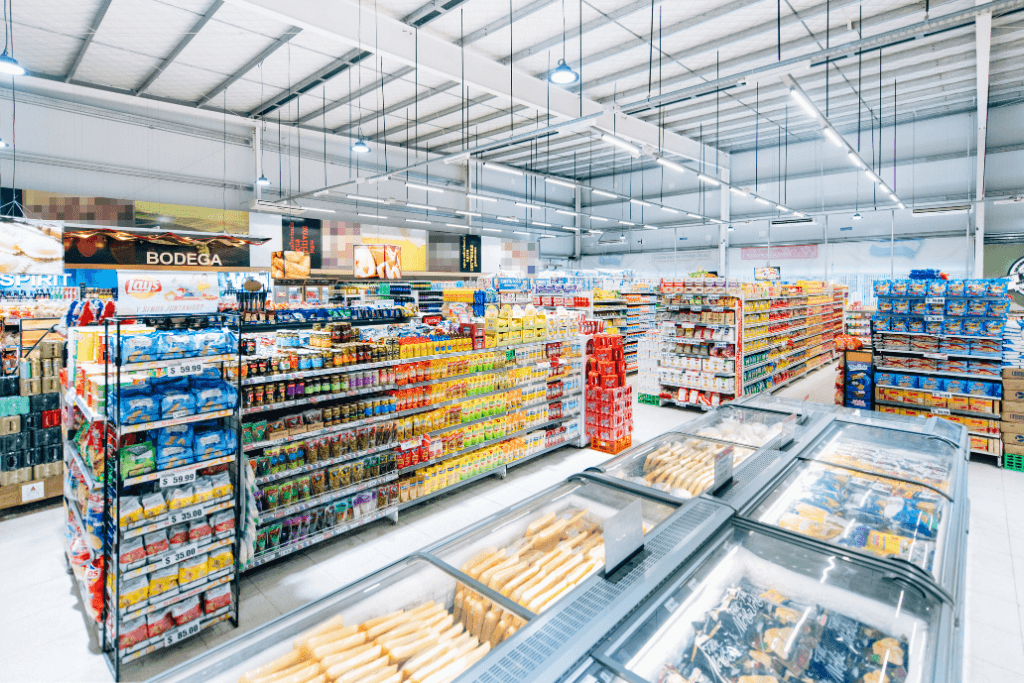In today’s fast-paced retail landscape, Fast-Moving Consumer Goods (FMCG) play a central role in our daily routines. From food and beverages to essential personal care items, these products are indispensable. But have you ever wondered about the intricate journey these goods take from manufacturers to your local store? The answer lies within the complex FMCG supply chain—an elaborate network designed to ensure efficient, timely distribution. Here, we explore the components of this supply chain, the key players such as wholesalers and retailers, and the distribution strategies that make FMCG products available worldwide.
What is the FMCG Supply Chain?
The FMCG supply chain is an integrated system that manages the flow of products from production through to consumers. This chain includes manufacturers, FMCG wholesalers, distribution partners, retailers, and logistics providers—all working together to ensure that Fast-Moving Consumer Goods reach shelves in pristine condition and on time. This chain operates globally, adapting to the demands of both traditional and modern trade distribution channels.
Types of FMCG Distribution Channels
1. Traditional Trade Distribution
Traditional trade distribution is prevalent in regions without modern retail infrastructures, particularly in developing markets. In this model, smaller FMCG wholesalers collaborate with local retailers, ensuring goods reach independent stores and neighborhood shops. By bridging the gap between manufacturers and small retailers, traditional distribution allows FMCG products to enter even remote markets. This method leverages the relationships wholesalers build with local retailers, offering a highly accessible FMCG distribution channel.
2. Modern Trade Distribution
Modern trade distribution, in contrast, prioritizes partnerships with large-scale retail formats, such as hypermarkets, supermarkets, and online platforms. This distribution channel streamlines logistics and automation, enabling FMCG suppliers to directly partner with retailers and, in many cases, bypass traditional intermediaries. This model is especially advantageous for forecasting demand, reducing delivery times, and meeting consumer expectations for fast, consistent supply.
The Role of FMCG Wholesalers and Retailers in the Supply Chain
FMCG Wholesalers
FMCG wholesalers act as intermediaries, purchasing products in bulk and reselling them to retailers in smaller quantities. They are particularly vital to traditional trade distribution channels, offering credit options and distributing to hard-to-reach markets. As a key part of the supply chain, wholesalers consolidate orders, helping both manufacturers and small retailers optimize operations while minimizing costs.
FMCG Retailers
Retailers are the final step in the FMCG supply chain, selling goods directly to consumers. From local shops to e-commerce platforms, FMCG retailers cater to diverse consumer needs, providing customers with multiple shopping options. The rise of digital platforms has also empowered retailers to combine physical and online sales channels, extending the reach of FMCG brands to a broader audience.
Key Distribution Strategies for FMCG Products
FMCG companies utilize various strategies to enhance efficiency across their supply chain, each suited to different market needs.
- Direct Distribution: Manufacturers supply goods directly to consumers or retailers without intermediaries, commonly used in modern trade. This approach provides FMCG companies with greater control over pricing, distribution, and customer engagement.
- Indirect Distribution: In this traditional strategy, wholesalers and distributors handle the logistics of moving products to retailers. Indirect distribution offers manufacturers a broader reach while allowing them to maintain a smaller number of partnerships.
- Hybrid Distribution: Combining both direct and indirect strategies, hybrid distribution enables FMCG companies to supply large retail chains and smaller outlets alike. This model allows businesses to be flexible, meeting the demands of diverse market conditions.
Challenges in FMCG Distribution
Efficient FMCG distribution comes with its challenges, especially when operating on a global scale.
- Logistics and Transportation: Smooth logistics and timely transportation are critical for maintaining product quality, particularly for perishable goods. Any delay can lead to stock shortages, waste, and lost sales.
- Demand Forecasting: Accurate forecasting ensures inventory levels meet market demand, which is crucial for avoiding stockouts or excessive inventory. FMCG suppliers increasingly rely on advanced data analytics to make informed decisions.
- Regulatory Compliance: FMCG companies often navigate complex regulations, including safety standards, labeling, and packaging. Non-compliance can lead to penalties or product recalls, which impact profitability and consumer trust.
Best Practices for Effective FMCG Distribution
To successfully navigate these challenges, FMCG companies employ best practices that enhance operational efficiency and customer satisfaction.
- Leveraging Technology: Digital inventory systems and supply chain management tools provide improved visibility, enabling FMCG companies to track products and optimize decision-making.
- Building Strong Distribution Partnerships: By collaborating with reliable distribution partners, FMCG companies ensure smooth operations and timely delivery.
- Channel Diversification: Adopting a hybrid distribution model allows FMCG companies to reach both traditional and modern markets, meeting diverse consumer needs.
- Prioritizing Sustainability: With the rise of eco-conscious consumers, many FMCG companies focus on sustainable packaging and reducing carbon emissions, adding value to their brand and meeting regulatory demands.
Conclusion
FMCG distribution channels are an intricate system of partnerships and strategies, all focused on bringing essential goods to consumers efficiently. From traditional to modern trade, each channel plays a crucial role in reaching markets across the globe. As the FMCG landscape continues to evolve, companies must stay adaptive, refining distribution practices to meet changing consumer expectations.
Through trusted FMCG distributors and efficient supply chain management, companies like Falcon Gallant offer retailers reliable access to a wide array of quality products, ensuring that store shelves remain stocked with the essentials consumers rely on. Whether in a local market or an international chain, effective FMCG distribution strategies ensure that Fast-Moving Consumer Goods are always within reach.



